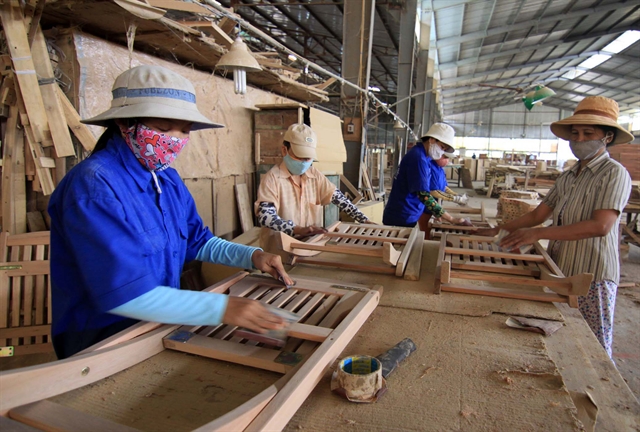Vietnamese firms should hasten technological development to position the country as a global manufacturing centre, Swedish experts said at a seminar on Tuesday.

Vietnamese firms should hasten technological development to position the country as a global manufacturing centre, Swedish experts said at a seminar on Tuesday.
According to Jennie Cato from the Swedish Association for Engineering Industries, technology had progressed and offered a broad range of advantages for the world’s socio-economic development.
In Sweden, at least 50 billion krona (about US$5.2 billion) was spent each year for 2010-17 on technology research and development (R&D), making the country home to a concentration of high-tech companies, Cato said.
R&D, with an intensive industrial community, was one of the three key strongholds for Sweden’s science and technology sector, she said, adding tech R&D was crucial for a country to stay ahead.
What has led to the rapid development of Swedish tech industry and positioning of the country among manufacturing hubs in the world was the increasing openness to public and private research institutes, parts suppliers and universities, she added.
The other two strongholds were a culture that promoted co-operation and private public partnerships (PPP).
Sweden was also well-known for its strategic joint initiatives for smart manufacturing thanks to the government and industries building a broad innovation platform to make co-operation a catalyst to boosting innovation and creating a leverage for leapfrogging rivals, she added.
Other important factors that also contributed to a nation’s technology advancement included education, a focus on small- and medium-sized enterprises, and internationalisation.
According to software and smartphone developer Bkav Corporation, Viet Nam was becoming the factory of the world.
Viet Nam had comparative advantages over other regional economies such as young and low-cost labour, low taxation thanks to its membership of free trade agreements, abundant natural resources and political stability, Vu Anh Thang said.
However, he pointed out those advantages would diminish in the next two years as other economies like Myanmar and Thailand would step up and have the same conditions.
Meanwhile, Viet Nam was lagging behind for its low value-added production, a weak part-supplying industry and lack of skilled workforce, he added.
The quality of workers would become the decisive factor Viet Nam's fight to compete against other economies, Thang said.
A high-quality workforce could only be achieved through “collaboration between creative firms and universities with a focus on corporate culture, leverage technology capability for the parts industry and the enhancement of global connections,” he said.
Brian Hull, country managing director of ABB Vietnam, said the country should develop robotics to improve productivity and reduce production costs.
Robots were extremely important to growth-emerging sectors like food and beverages and they could assure higher quality and consistency for the production chain, he added.
Robots would play a critical role in the factory of the future, which would have a shorter cycle and greater human-robot interaction, Brian said.
The seminar was part of the Sweden-Viet Nam Business Summit: Partnering for Sustainable Growth and Innovation, which was held on Tuesday on the commemoration of the 50th anniversary of Sweden-Viet Nam diplomatic ties and on the occasion of the visit to Vietnam by HRH Crown Princess Victoria of Sweden, HRH Prince Daniel and H.E. Ms Ann Linde, Minister for Foreign Trade. — VNS





